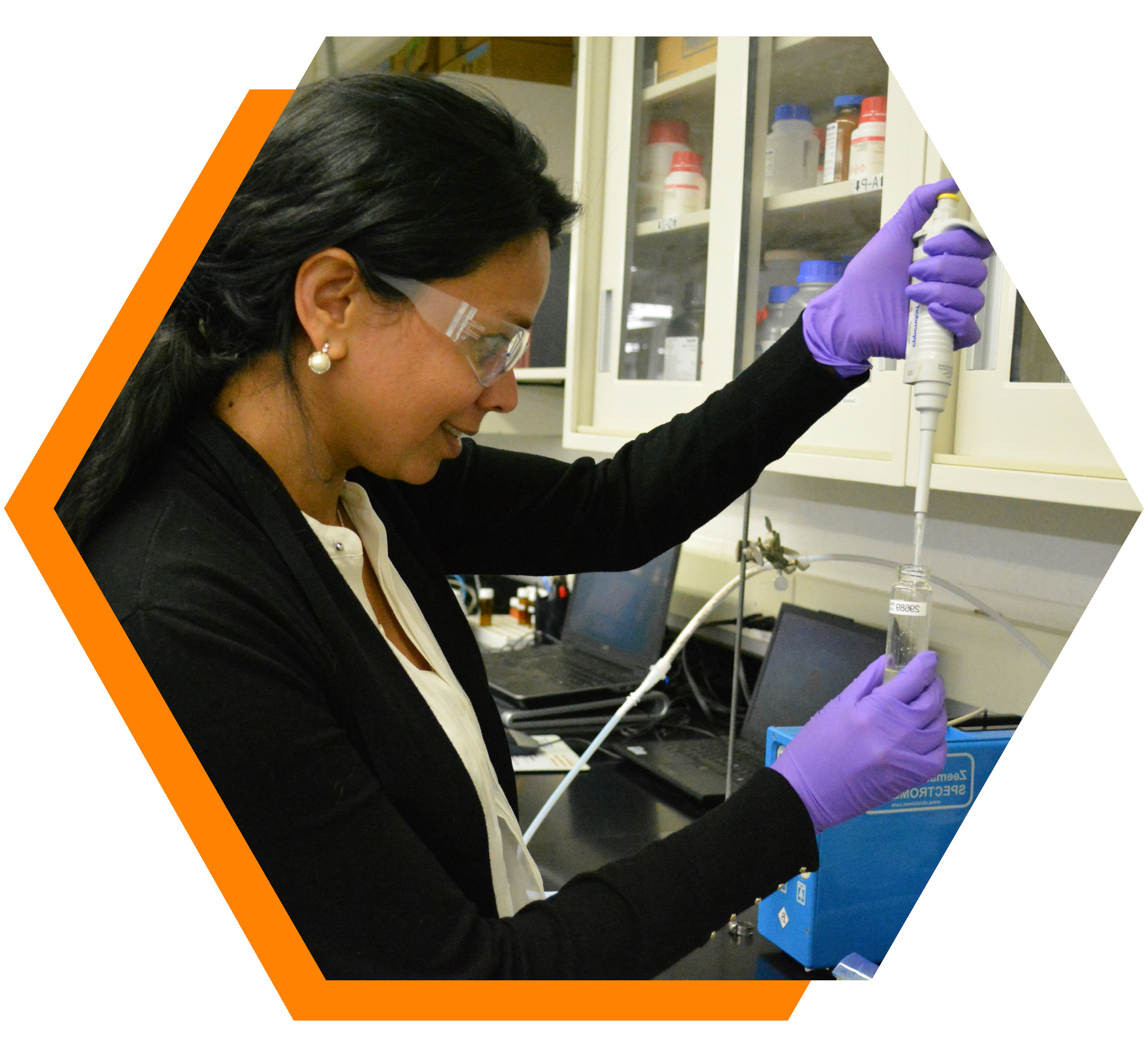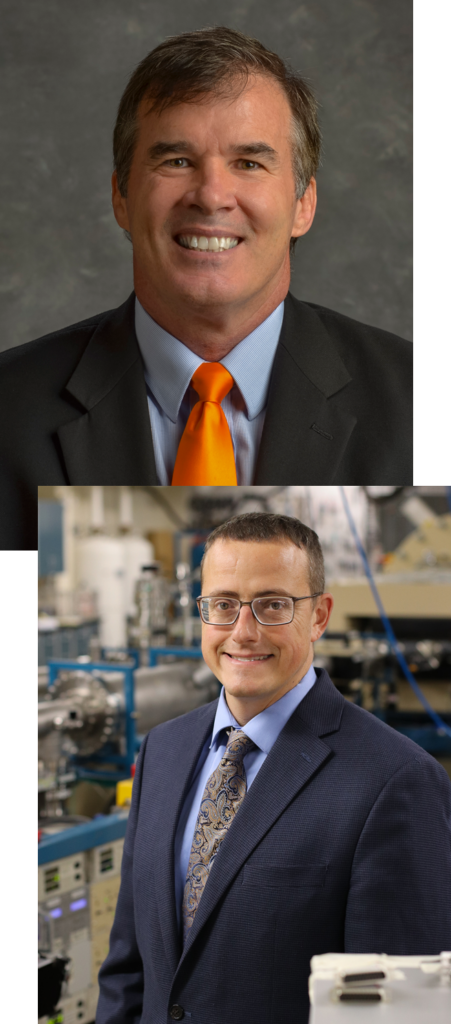Program for Advancing Collaborative Teams (PACT)
The Science Alliance was formed to build and enhance relationships between University of Tennessee, Knoxville (UT) faculty and Oak Ridge National Laboratory (ORNL) scientists and engineers. In keeping with this rich history, the Science Alliance implemented the Program for Advancing Collaborative Teams (PACT) program to provide support for collaborative research endeavors aimed at securing large extramural funding, such as NSF Materials Research Science and Engineering Centers (MRSEC) or NIH RM1 grants.

Applying for PACT
Calls for this program will be made approximately 15 months before the anticipated submission of an external proposal. Investigator-identified opportunities will also be considered, if they are brought to the attention of Science Alliance with sufficient lead time to issue a university wide call. Typical awards will be $100-200k, and 2-3 awards are expected to be made. Projects will have staged funding for one year as long as performance metrics are achieved. A chance for second year funding will also be available if the project shows strong promise of receiving new external funding as a result of the collaborative activities and is deemed meritorious in the second year‘s proposal evaluation process.
The PACT proposal period has closed.

PACT research teams have been awarded over $850,000 since 2022.
PACT Awardees

Thomas Zawodzinski – 2024
Governor’s Chair for Electrical Energy Conversion and Storage
Thomas Zawodzinski, the UT-ORII Governor’s Chair for Electrical Energy Conversion and Storage, is engaged in a PACT project primarily focused on research on energy storage (batteries) for electric vehicle applications. Via the PACT project, Zawodzinski is leading the university research aspect of the Second Life Battery Storage Project, an effort to repurpose used electric vehicle (EV) batteries to bolster America’s electric grid. Through this PACT project—which aligns with UT-ORII’s Convergent Research Initiative on energy storage and transportation—Zawodzinski will develop and expand collaborations with automotive and utility partners and ORNL.

Wesley Hines & Khalid Hattar – 2023 & 2024
Department of Nuclear Engineering & Tennessee Ion Beam Materials Laboratory
The Tennessee Ion Beam Materials Laboratory (TIBML) was constructed in 2012 as a result of approximately $4M in investments with a particular focus on world-class ion beam analysis (IBA) capabilities. Investment in this project will help add a third accelerator (200-300 kV implanter), which opens up the range of ion species and energies that can be explored and also provides the capability for simultaneous heavy ion irradiation and H or He implantation, which is important for a variety of fission and fusion energy research programs. This will expand the TIBML from a premier IBA facility to one that can compete with the world-class facilities in ion beam modification with greater flexibility and the ability to accommodate more than one user at a time.

Dayakar Penumadu – 2023
Department of Civil and Environmental Engineering
Hypersonic technologies have been investigated in the past for reusable applications such as space shuttles. Today, new classes of hypersonic weapons capabilities are emerging throughout the world and there is an urgent need to develop a new class of materials needed to satisfy extreme environment to be experienced related to temperature, mechanical loading, and plasma driven environment exposing material surfaces to atomic oxygen and nitrogen. This project proposes to develop novel materials, carbon matrix composites with carbon fiber reinforcement that can consider a variety of fiber architecture and high carbon resins for conversion with improved throughput.

Nicole McFarlane – 2022
Min H. Kao Department of Electrical Engineering and Computer Science
Toward Hybrid Biomicroelectronic Systems
Biological systems have been shown to be much more efficient at sensing, processing, and communicating data. However, while there are many different tools to monitor these systems there is little work developing systems which form a closed loop between the biology and the electronics to create hybrid biomicroelectronic systems. The goal of this project is to investigate these hybrid systems and develop of means of engineering cellular expression within them.
